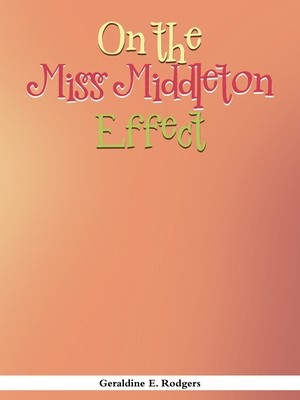
- We will send in 10–14 business days.
- Author: Geraldine E Rodgers
- Publisher: AuthorHouse
- ISBN-10: 1665565551
- ISBN-13: 9781665565554
- Format: 21 x 27.9 x 0.8 cm, softcover
- Language: English
- SAVE -10% with code: EXTRA
Reviews
Description
Miss Middleton's scores are, indeed, a frozen moment in time which prove the existence in 1913 and 1914 of "automatic" phonic decoding of print as opposed to "conscious" psycholinguistic decoding of print. The scores also prove that automatic decoding does result from the phonic "sound" method to teach reading, since that is how Miss Middleton's children learned to read. However, the "reading experts" in 1914 and after must have misinterpreted scores like Miss Middleton's wildly fluctuating scores, which obviously were the result of freely wandering attention, by concluding instead that the scores had "proved" that the "sound" method had failed. The truth is that such low "reading comprehension" scores on "silent reading comprehension" tests for phonic-trained classes suggest the presence of healthy automatic conditioned reflexes in reading. Such scores may result from the Miss Middleton Effect of voluntarily wandering attention while reading automatically. Her children simply did not bother to pay attention to what they were reading automatically, but could have done so if they felt like it. Yet the inferior deaf-mute "sight-word" method forces children's attention to "meaning" or they cannot read at all. They may therefore score higher on simple "reading comprehension tests", but far, far worse on spelling and on reading correctly the actual words on the page.
EXTRA 10 % discount with code: EXTRA
The promotion ends in 11d.12:12:47
The discount code is valid when purchasing from 10 €. Discounts do not stack.
- Author: Geraldine E Rodgers
- Publisher: AuthorHouse
- ISBN-10: 1665565551
- ISBN-13: 9781665565554
- Format: 21 x 27.9 x 0.8 cm, softcover
- Language: English English
Miss Middleton's scores are, indeed, a frozen moment in time which prove the existence in 1913 and 1914 of "automatic" phonic decoding of print as opposed to "conscious" psycholinguistic decoding of print. The scores also prove that automatic decoding does result from the phonic "sound" method to teach reading, since that is how Miss Middleton's children learned to read. However, the "reading experts" in 1914 and after must have misinterpreted scores like Miss Middleton's wildly fluctuating scores, which obviously were the result of freely wandering attention, by concluding instead that the scores had "proved" that the "sound" method had failed. The truth is that such low "reading comprehension" scores on "silent reading comprehension" tests for phonic-trained classes suggest the presence of healthy automatic conditioned reflexes in reading. Such scores may result from the Miss Middleton Effect of voluntarily wandering attention while reading automatically. Her children simply did not bother to pay attention to what they were reading automatically, but could have done so if they felt like it. Yet the inferior deaf-mute "sight-word" method forces children's attention to "meaning" or they cannot read at all. They may therefore score higher on simple "reading comprehension tests", but far, far worse on spelling and on reading correctly the actual words on the page.


Reviews